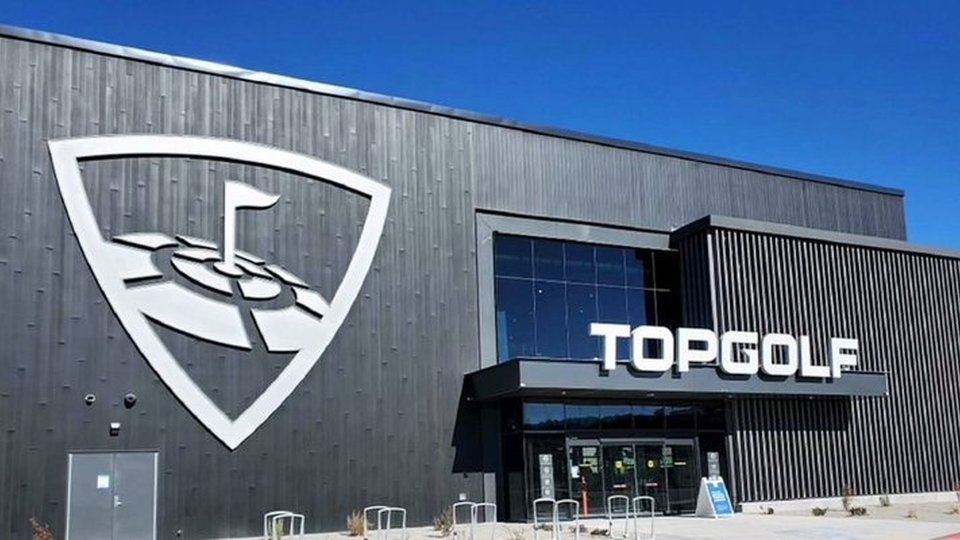Commentary
Social entertainment drives ‘digital/physical’ development phase
The post-lockdown audience has clearly renewed its fascination for the reinterpretation of the hospitality and entertainment combination.

May 23, 2022 by Kevin Williams
The explosion in entertainment development continues at a fast pace, with moves by some corporations towards a "digital/physical" strategy that incorporates social entertainment.
The rise of social entertainment has been personified by the popularity of the hospitality-centric entertainment venues seen with Topgolf, Puttshack, FlightClub, Swingers and other brands.
However, this new phase of entertainment experience is better described as "competitive socializing" — a term first coined in the U.K. as far back as 2015 and initially defining pubs incorporating a circus entertainment vibe, or bowling and food and beverage brands.
It is a blending of a hospitality atmosphere and a re-imagining of conventional competitive entertainment.
Food, beverages and bar games
The fundamentals consist of a food and beverage element with traditional competitive bar and tavern games such as darts, pool, shuffleboard, table tennis, bowling and amusements.
The twist for the current adoption of competitive socializing is the inclusion of guests' engagement, be it the use of tracked balls and scoring seen in the new generation of crazy golf properties such as with "Lucky Putt" from Creative Works, or the use of augmented reality projection technology in the "Smarts: Interactive Darts" platform, from 501 Entertainment.
This goes much further than just adding cocktails and food snacks to a traditional bowling or golf experience.
Competitive socializing is designed to appeal to the new sophisticated target audience, with a repeatable food-and-fun offering and the ability to embrace the socially connected nature of the modern entertainment business and beyond.
Escape rooms lead change
One aspect of the social entertainment explosion that has been hard to pigeonhole was that of the escape room experience. A law unto itself, the closest affiliation had been with the "scare" attraction scene, and even LARP'ing (live action role playing).
Under the "competitive socializing" definition, a whole subsection addressing "timed experiences" has been classified and sees the traditional escape game evolving into a more social entertainment experience, with the inclusion of a longer dwell time and hospitality elements.
This timed experience, with LARP'ing elements, based on strong brands, is an emerging business focus. Netflix and Fever partnered to bring to London "Money Heist: The Experience" which sees the audience taken through an auction and then embroiled in the robbery and eventual gold heist.
The pop-up experience has visited Mexico City, New York, Los Angeles and Paris, with the launch of the series following a marketing model that Netflix has employed, as seen with the recent "Army of the Dead Immersive Virtual Reality Experience."
Game brands follow suit
Other major brands have looked at this live experience approach, such as from Hasbro, along with its themed amusement park in the West Edmonton Mall in Canada. The company has deployed its "Monopoly Lifesized" experience in London in partnership with Gamepath.
This also sees audiences navigating life-sized segments of the popular boardgame, while interacting with actors and solving puzzles and tests of skill — with a major injection of "atmospheric hospitality" with cocktails and dining at the end.
Another toy brand entertaining the experience market is Mattel, which revealed in 2019 plans to create interactive family entertainment centers based on their popular brands such as Barbie, Hot Wheels and Mega Construx.
The first of these was the flagship "Mission: Play!" — a 25,000-square-foot Toronto, Canada facility, developed in partnership with P2Entertainment. This is to be followed by a 43,000-square-foot facility located in the Potsdamer Platz in Berlin, Germany, to open later this year operated by Planet Leisure Germany GmbH.
Other live experiences based on "Tomb Raider," "Judge Dredd," "Doctor Who" and even "The Gunpowder Plot" are live events all scheduled for launch this year.
The market expands
Another aspect of the social entertainment scene has been the number of new players. One of those is Toca Social, the company associated with the football players' training operation, which opened its flagship social entertainment experience a few months back in The O2 in London.
What some have described as "Topgolf for football!," the facility comprises 17 football simulator booths, using tracking software and a projected screen, with players demonstrating their shooting skills through a variety of mini games, scoring points.
Gravity Active Entertainment, meanwhile, announced plans to invest some £2 million ($1.25 million) in its original U.K. facility, Xscape in Yorkshire.
Along with the inclusion of a sky coaster and free-fall experience, the venue will be installing the GT e-karting as well as the inclusion of the Electric Gamebox immersive rooms, marking a continuation from the core business of trampoline park to a more rounded entertainment experience.
Mellor Group recently introduced its "Urban Playground" venue concept, an 1,850-square-meter flagship that sees a mixture of social entertainment components and hospitality.
Leading the draw to the facility is the social entertainment based on the popular television game show, "The Cube: Live Experience," with teams competing in physical challenges in a timed experience based on the ITV licensed show property.
The next element is "Putters Mini-Golf," a state-of-the-art "tech-infused" golf experience for groups with tracked scoring, supported by hospitality from the award-winning restaurant chain "The Butcher" and its own bar. This represents one of the clearest examples of the draw for the traditional leisure entertainment scene to this new genre of social entertainment.
Boom Battle Bar has been expanding its social entertainment operation comprising one owned and five franchised sites and now looking at leases signed on another 18 venues with aspirations of some 39 more sites in total.
A global market
Wales in the U.K. saw the opening of the brand-new concept, "Par 59" — comprising three nine-hole, highly themed, mini-golf series of courses developed by Wild Creations and a golf themed bar and restaurant, covering some 23,000-square feet. and accommodating some 164 patrons. The concept is expanding, in phase two, to include billiard rooms.
In Japan, the CA Sega Joypolis operation, owned by China Animations, plans to roll out an active entertainment facility property based on the retention of the brand. Artist's renderings were revealed with the announcement of the opening of the flagship Joypolis Sports' operation in Tokyo's Aeon Sendai Nakayama mall.
The new concept offers activities ranging from table tennis to basketball and trampolines, supported by party games such as darts and billiards, as well as an e-sports arena.
The post-lockdown audience has clearly renewed its fascination for the reinterpretation of the hospitality and entertainment combination.
(Editor's note: Extracts from this blog are from recent coverage in The Stinger Report, published by Spider Entertainment and its director, Kevin Williams, the leading interactive out-of-home entertainment news service covering the immersive frontier and beyond.)
About Kevin Williams
Along with advisory positions with other entrants into the market he is founder and publisher of the Stinger Report, “a-must-read” e-zine for those working or investing in the amusement, attractions and entertainment industry. He is a prolific writer and provides regular news columns for main trade publications. He also travels the globe as a keynote speaker, moderator and panelist at numerous industry conferences and events. Author of “The Out-of-Home Immersive Entertainment Frontier: Expanding Interactive Boundaries in Leisure Facilities,” the only book on this aspect of the market, with the second edition scheduled for a 2023 release.
 ChatGPT
ChatGPT Grok
Grok Perplexity
Perplexity Claude
Claude






